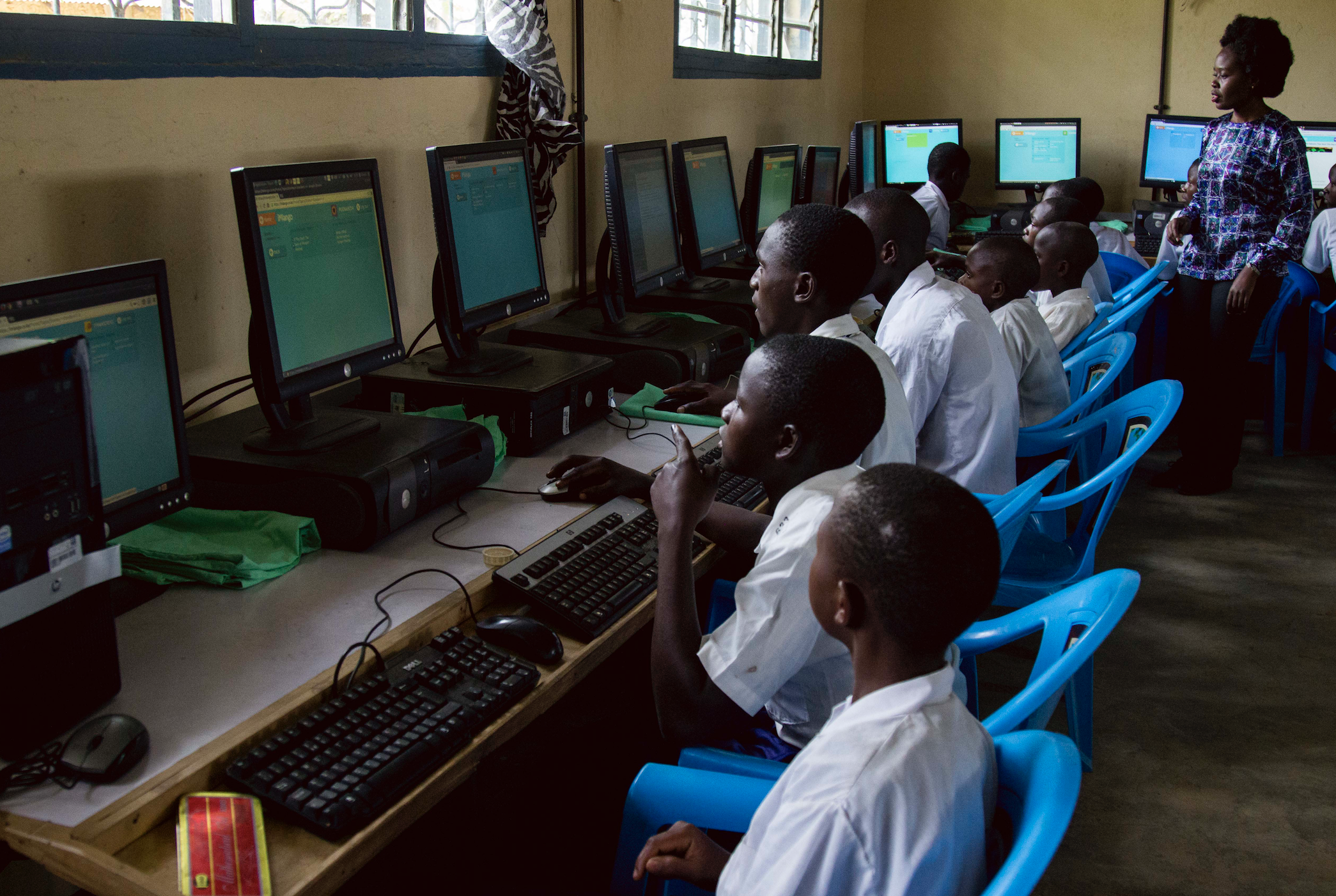Simon Bruce Kaniu, iMlango Local Project Lead and sQuid Kenya General Manager delivered the talk at the Wilton Park conference, and said: “We believe the role of technology in providing an education platform accessible by all students is vital. It can’t work just on its own; there will always be a focus on the human elements of teacher skills and motivation, and the out of school factors that affect the marginalised. In Kenya, we have been trying to bring all of these components together with our iMlango partners.”
On the role of the private sector and how it can partner with governments and NGOs to improve girls' education, Simon added: "I believe that the private sector can play a key role in improving girls' education by utilising its experience in devising and driving commercial activities within programmes, to ensure that they are sustainable and continue to impact schools and the surrounding communities after initial funding has finished.
"To reach and support the most marginalised children, the private sector, governments and NGOs must work together collectively to continue to innovate, improve delivery, and drive scale within educational development programmes."
The three-day roundtable at Wiston House in Sussex aimed to produce a set of recommendations for a transnational collaborative campaign; it achieved the following:
- Identified options and recommendations to develop a new, transformative UK-led diplomatic campaign in support of 12 years of quality education;
- Identified what success looks like, including good practice and policy from the education sector and beyond on diplomatic transnational campaigns;
- Highlighted the successes of international efforts to improve girls’ education so far, map where gaps remain and recommend actions to address them; and
- Developed lasting partnerships between varying sectors and agencies to collaborate in successfully delivering campaigns leading to improvements for girls’ education
We'd like to thank Wilton Park for the invitation and for providing us with the opportunity to share our experiences and insights from the programme.
For more information on Wilton Park, please click here



